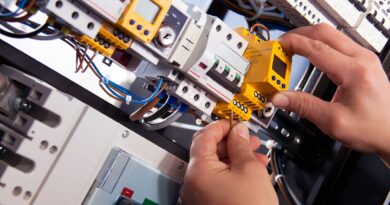Safety Unleashed: Harnessing the Power of Electrical Testing in Delhi for a Secure Future
1. Introduction
Electrical testing plays a pivotal role in ensuring the safety and security of electrical installations in Delhi. With the rapid urbanization and increasing reliance on electricity, it becomes essential to harness the power of electrical testing to mitigate risks, prevent accidents, and protect lives. This article explores the significance of electrical testing, its various types, benefits, and its role in promoting safety in Delhi.
2. The Importance of Electrical Testing
Electrical testing is the process of inspecting and evaluating electrical systems, equipment, and installations to ensure they are functioning optimally and safely. It helps identify potential hazards, detect faulty components, and assess the overall condition of electrical systems. By conducting regular electrical testing, the risk of electrical accidents, such as shocks, electrocutions, and fires, can be significantly reduced.
3. Electrical Hazards and Risks
Electrical hazards pose a significant threat to both individuals and property. Faulty wiring, outdated equipment, and improper installations can lead to electrical shocks, electrocutions, and electrical fires. In Delhi, where the demand for electricity is high and electrical infrastructure is extensive, the risk of electrical accidents is heightened. Electrical testing is a proactive measure to identify and rectify potential hazards, thereby preventing accidents and ensuring the safety of residents and premises.
4. Types of Electrical Testing
4.1 Routine Testing
Routine testing involves regular inspections and assessments of electrical systems and equipment. It aims to identify any immediate risks or faults that could compromise safety. Routine testing includes visual inspections, voltage testing, and functional testing of electrical components.
4.2 Preventive Testing
Preventive testing is conducted periodically to assess the condition and performance of electrical systems. It helps identify potential issues before they escalate into major problems. Preventive testing includes insulation resistance testing and earth continuity testing to ensure electrical insulation and earthing are functioning effectively.
4.3 Diagnostic Testing
Diagnostic testing is performed when there is a specific problem or suspected fault in the electrical system. It involves in-depth analysis and testing to identify the root cause of the issue and develop an appropriate solution. Diagnostic testing is crucial for troubleshooting and resolving complex electrical problems.
5. Benefits of Electrical Testing
5.1 Enhancing Safety
The primary benefit of electrical testing is enhancing safety. By identifying and rectifying potential hazards, electrical testing minimizes the risk of electrical accidents, protecting individuals and property from harm.
5.2 Preventing Accidents and Fires
Electrical testing helps prevent accidents and fires by detecting faulty wiring, inadequate insulation, or malfunctioning components. Regular testing ensures that electrical systems are up to code and functioning safely.
5.3 Improving Efficiency and Performance
Through electrical testing, inefficiencies in electrical systems can be identified and rectified. This improves overall performance, reduces energy wastage, and enhances the lifespan of electrical equipment.
6. The Process of Electrical Testing
Electrical testing follows a systematic process to assess the safety and performance of electrical systems. The key steps involved in electrical testing include:
6.1 Visual Inspection
A visual inspection is conducted to identify any visible signs of damage, wear, or deterioration. This includes checking for loose connections, damaged cables, and outdated equipment.
6.2 Voltage Testing
Voltage testing is performed to measure the voltage levels in different electrical circuits. It ensures that the voltage is within the acceptable range and helps detect any abnormal fluctuations.
6.3 Insulation Resistance Testing
Insulation resistance testing measures the effectiveness of electrical insulation. It helps identify any insulation breakdowns or leaks, which can lead to electrical shocks or short circuits.
6.4 Earth Continuity Testing
Earth continuity testing ensures that the grounding system is functioning effectively. It verifies the continuity of the electrical path to the ground, preventing electrical shock hazards.
6.5 Functional Testing
Functional testing involves testing the performance and functionality of electrical components and systems under normal operating conditions. It helps ensure that electrical systems are operating as intended.
7. The Role of Electrical Testing in Delhi
7.1 Ensuring Safety in Residential Areas
Electrical testing is crucial for ensuring the safety of residents in Delhi’s numerous residential areas. By identifying and rectifying electrical hazards, testing helps prevent accidents and promotes a secure living environment.
7.2 Securing Commercial and Industrial Spaces
Commercial and industrial spaces in Delhi often have complex electrical systems. Electrical testing plays a vital role in securing these spaces by ensuring compliance with safety standards, preventing disruptions, and safeguarding valuable assets.
7.3 Promoting Public Safety
Electrical testing in public places, such as schools, hospitals, and government buildings, is essential to promote public safety. Regular testing helps maintain the integrity of electrical systems, reducing the risk of accidents and ensuring the well-being of the general public.
8. Choosing a Reliable Electrical Testing Service
When it comes to electrical testing, it is crucial to select a reliable and competent service provider. Consider the following factors when choosing an electrical testing service:
8.1 Certification and Accreditation
Ensure that the testing service provider is certified and accredited by relevant regulatory bodies. This ensures their competence and adherence to industry standards.
8.2 Experience and Expertise
Look for a service provider with extensive experience and expertise in electrical testing. Experienced professionals can efficiently identify and address electrical issues.




